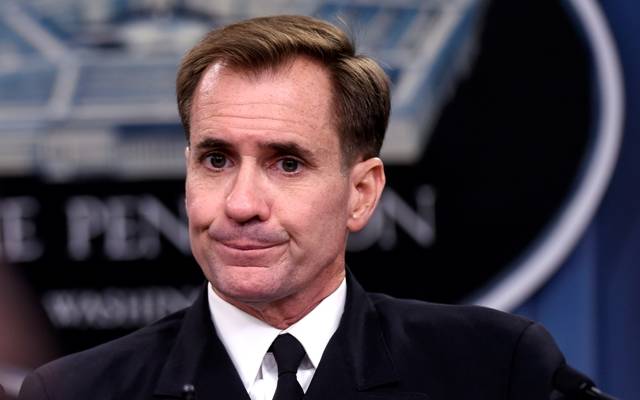Israel canceled its delegation to Washington after the US abstained from rather than vetoed a UN Security Council ceasefire resolution.
By Andrew Barnard, JNS
John Kirby, the White House national security communications advisor, told reporters on Monday that the Biden administration is “disappointed” that Israeli Prime Minister Benjamin Netanyahu called off a high-level delegation to Washington to discuss a potential Israeli ground operation in Rafah.
Israel decided to cancel the ministerial visit after Washington abstained on, rather than vetoing, a ceasefire resolution at the U.N. Security Council on Monday.
“We’re very disappointed that they won’t be coming to Washington, D.C., to allow us to have a fulsome conversation with them about viable alternatives to going in on the ground in Rafah,” Kirby told reporters.
Israeli Strategic Affairs Minister Ron Dermer and National Security Adviser Tzachi Hanegbi had been scheduled to arrive in Washington on Tuesday for meetings with U.S. counterparts to discuss Israel’s plans for a military operation in southern Gaza. Kirby said the officials would discuss proposals for “viable options and alternatives to a major ground offensive.”
Following Monday’s vote, Jerusalem announced that “in light of the change in the American position, Prime Minister Netanyahu decided that the delegation will not depart.”
Kirby denied a shift in U.S. policy in abstaining from the nonbinding ceasefire resolution. There is no reason for there to be an escalation of tensions between America and Israel, he said.
“Nothing has changed about our policy—nothing,” Kirby said. “We still want to see a ceasefire, and we still want to get hostages out—all of them. And we would still want to see more humanitarian assistance get in to the people of Gaza. The reason we abstained is because this resolution text did not condemn Hamas.”
Kirby also denied that there has been a change in the way the Biden administration talks about the potential Israeli military operation in Rafah, from asking to see a “credible plan” to rejecting the operation outright.
“We said weeks ago that we believe a major ground operation in Rafah would be a disaster, absent any proper accounting for the safety and security of the refugees that are still there,” Kirby said. “We still believe the same thing.”
“I don’t see any change in the rhetoric,” he said. “We don’t support a ground operation into Rafah.”
